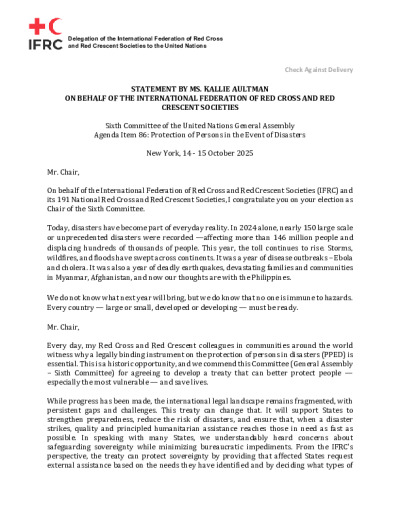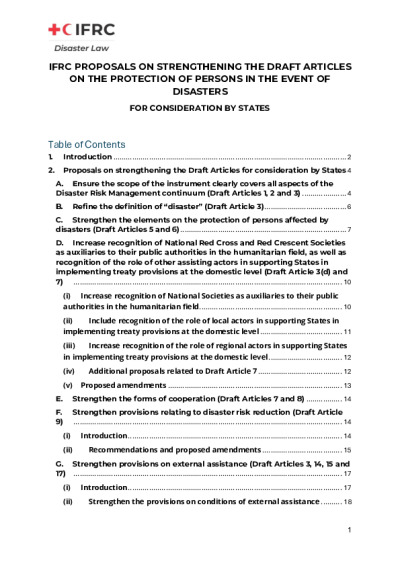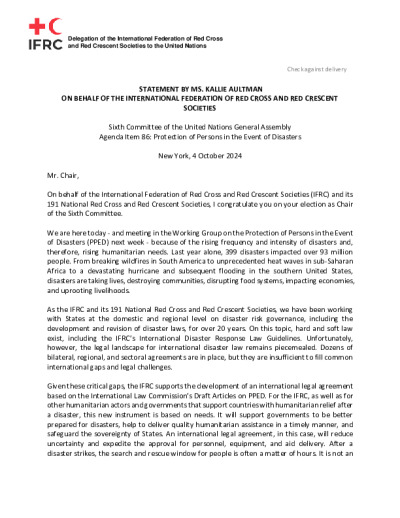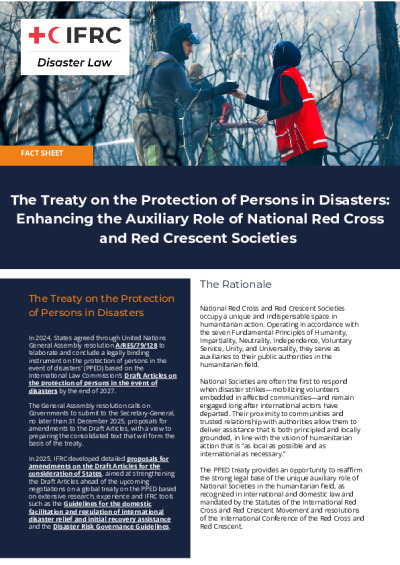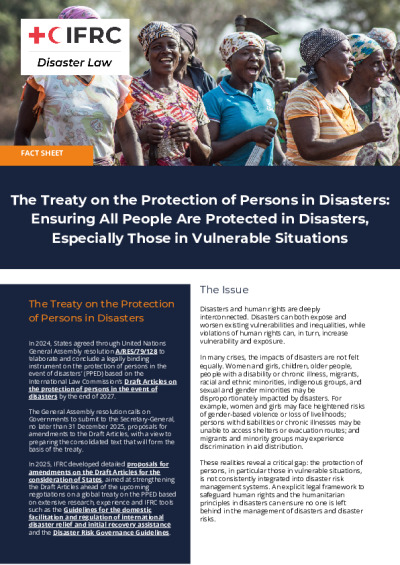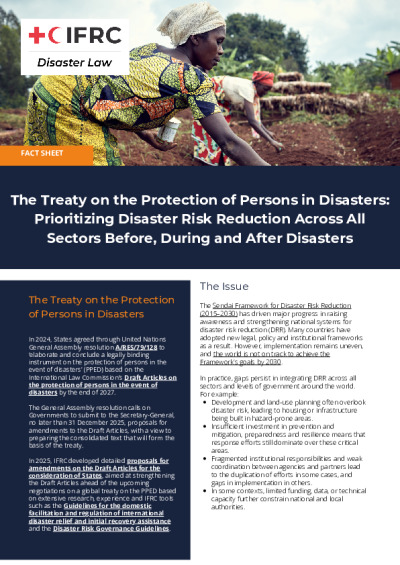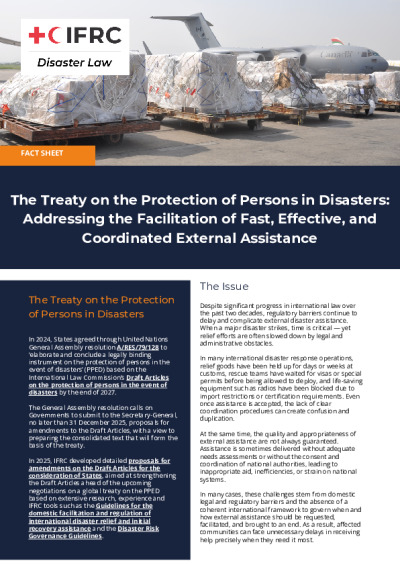In 2024, the United Nations General Assembly agreed to ‘elaborate and conclude a legally binding instrument on the protection of persons in the event of disasters’ (PPED) based on the International Law Commission’s Draft Articles on the protection of persons in the event of disasters, by the end of 2027. This decision reflects the concrete recognition by States of the central importance of the protection of persons affected by disasters in the global humanitarian landscape.
A binding instrument based on the Draft Articles provides an opportunity to not only clarify and consolidate States’ and other assisting actors’ obligations with respect to the management of disasters and disaster risk, but save lives. A treaty on the protection of persons in disasters has the potential to:
- Ensure all people are protected in disasters, especially those in vulnerable situations;
- Enhance cooperation amongst States and between States and non-State actors in DRM;
- Ensure disaster risk reduction (DRR) is prioritised across all sectors before, during and after disasters; and
- Address the facilitation of fast, effective, and coordinated international humanitarian assistance to save lives after a disaster.
This space is dedicated to sharing resources relating to the upcoming PPED treaty, ahead of its negotiation.
To follow the latest developments in New York relating to the PPED treaty, click here.
IFRC Disaster Law is working with a network of academic experts from all around the world with specialized expertise on the ILC Draft Articles on Protection of Persons in the Event of Disasters, international disaster law and public international law who have come together to foster further engagement by States in the diplomatic process relating to the PPED treaty and to raise awareness on the relevance of the treaty among humanitarian stakeholders, domestic authorities, academia, and civil society.
